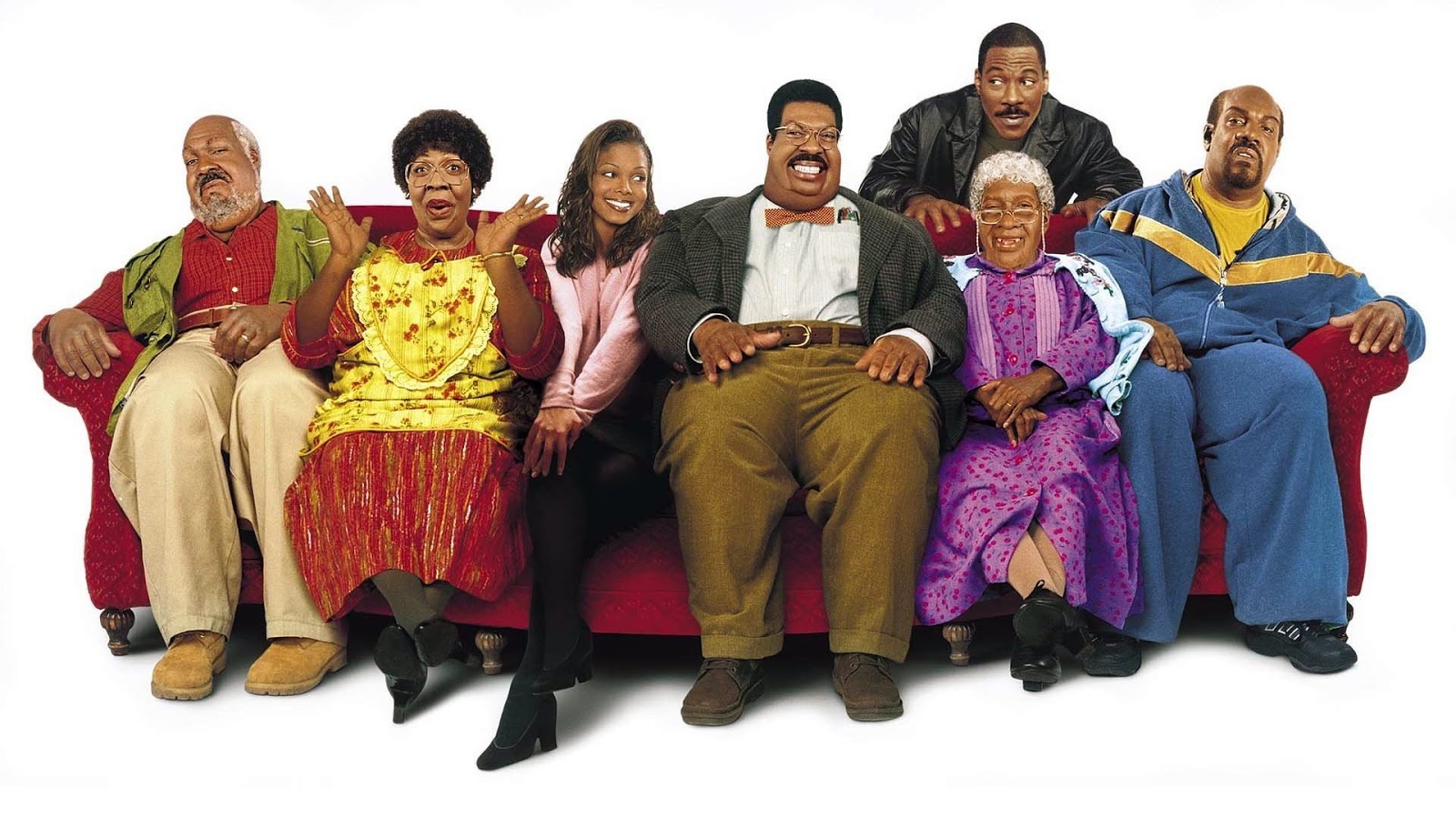There is an agonizing sense of déja vu that kicks in shortly after “What Lies Beneath” opens on the screen, as if all of the images, the twists, the outcomes, have been seen not so long ago. Anyone, of course, who has been tuned in to the film’s recent overexposure on television and in theaters knows why this feeling is induced: because every important moment in the movie itself has been in one way or another been used as promotion for the theatrical run, draining the product of its element of surprise. You know how it is when some big loud mouth tells you the entire plot to a film you have yet to see? “What Lies Beneath”s advertising campaign operates on those impulses.
Friday, August 25, 2000
Nutty Professor II: The Klumps / *1/2 (2000)
The utilization of bathroom humor is so relentlessly exercised in “Nutty Professor II: The Klumps” that it’s a wonder the movie doesn’t just flush itself down the toilet. Not that it would be missed or anything; with bad taste at a crest in the mainstream market (refer to “Scary Movie” for the latest), one can easily look somewhere else for a more satisfying use of gross-out comedy and usually come out ahead. Something like “Road Trip,” for instance, matches its repugnance with a sense of humor, while films like this assume that the inclusion of bad taste alone immediately equates with genuine laughs. Audiences will undoubtedly stare at this Eddie Murphy misfire with dismay and anger in their eyes; it is one of the most tone-deaf, sloppy excuses for comedy seen so far this year.
Hollow Man / ** (2000)
Paul Verhoeven’s “Hollow Man” is a technical achievement that is hard to resist, greatly heaped with wondrous images of striking detail and accuracy that—pardon the repetition of phrase—only special effects can master. But it is a movie, alas, littered by all the negative attire of a traditional summer blockbuster; unstable characters, weak reasoning, an incoherent plot, and sometimes, even general stupidity. It’s in the same vein as last summer’s “The Sixth Sense,” I guess; while the efforts showcased by these filmmakers are admirable, the hordes of conflicting energy drain the thrill of simply watching the visual style unfold on itself.
Coyote Ugly / ** (2000)
Watching “Coyote Ugly” is like navigating a rain forest without a survival guide; we gape at the dazzling spectacles, but there’s no telling where any of it will lead us or how much time it will waste. The movie is one of the most bizarre of its kind, executed without focus or integrity, yet provoked enough to keep dragging us through plot situation after plot situation as if there was some hope for a positive outcome. About halfway through the first act, I began to wonder with a sense of frustration, “what is the purpose of going any further?” You can’t expect too much from any movie, after all, that tries to be a buddy picture, a loose coming-of-age tale, and a PG-13 version of “Showgirls” all at the same time.
The Cell / ***1/2 (2000)
The persistent debates between film critics have perhaps never spawned a divide as broad as the one we see with Tarsem Singn’s “The Cell.” On one hand, we have writers like Jeanne Aufmuth heralding this new theatrical arrival as “a mind-bending, acid-trip of a movie—fresh, disturbing, and inimitable”; on the other, we have critics like T.W. Siebert denouncing the picture as a “reprehensible and gratuitous piece of garbage.” Heck, there are those who fall somewhere in between the branched consensus (such as Dan Jardine, who admits that the film has “stunning production design, costumes and special effects,” but suffers from a “meagre plot”). In situations like these, the average moviegoer who reads reviews in search of a recommendation will be admittedly left in limbo, making it almost necessary for them to go and see the picture for themselves to see which side of the quarrel they fall on. The question of “who is right and who is wrong” is subjective in the end, however, as there is no definite answer, for any of us, when it comes to a movie like “The Cell.” All we can do is accept the film for what we see it as: a perfect blend of style and substance, a special effects feast that redeems a dismal story, a mediocre production with some strokes of merit, or a total misfire.
Bless the Child / ** (2000)
When the night sky is shimmered by the sudden appearance of a bright and distinctive star, nurse Maggie O’Connor, whose religious beliefs are questionable after three miscarriages and a lengthy divorce, is told by a nearby bus passenger that it denotes the arrival of a gift from the heavens. This particular star, you see, has not been seen since the days of the birth of Jesus Christ, and as it looms bright and large high in the sky as if some heavenly presence is watching for the birth of a new savior, Maggie is greeted at her front door by her drug addict sister and, of course, a newly born child. This is hardly coincidental, as audiences will be able to tell, but it is exactly the kind of observation that makes “Bless The Child” the newest in a long line of narratively dreary satanic-like thrillers, as characters spend countless time discussing and studying different theories behind the this “special” little girl, all while we have had the mystery figured out since the very beginning.
Subscribe to:
Posts (Atom)






